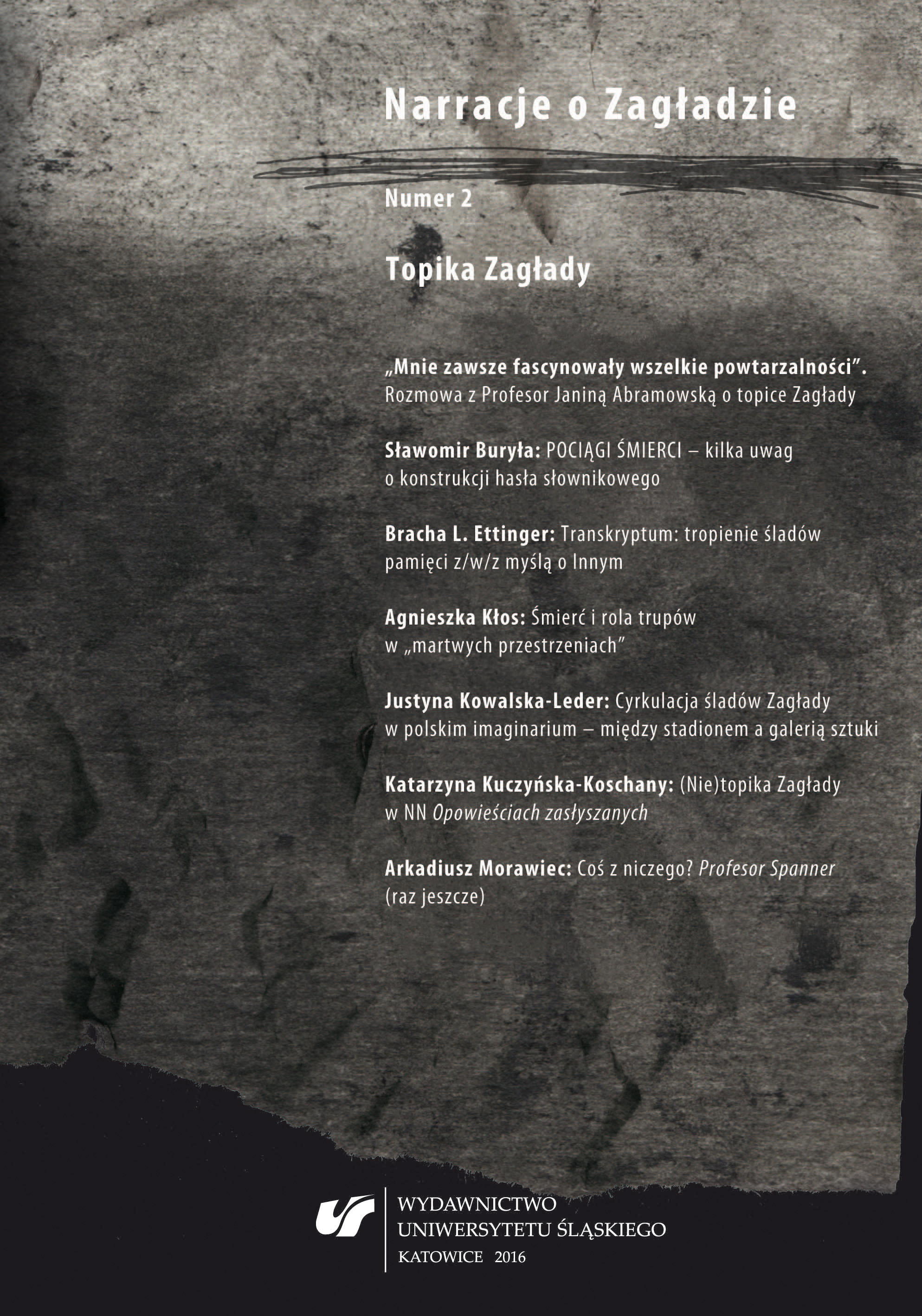Uraz – bliskość – nie‑pamięć. Psychoanalityczny dyskurs traumy od Freuda do Ettinger
Wound – Proximity – Non‑memory. Psychoanalytically Grounded Trauma Discourse from Freud to Ettinger
Author(s): Anna KisielSubject(s): Philosophy, Language and Literature Studies, Fine Arts / Performing Arts, Psychology, Studies of Literature, Comparative Study of Literature, Polish Literature, Psychoanalysis, Criminology, History of the Holocaust, Theory of Literature
Published by: Wydawnictwo Uniwersytetu Śląskiego
Keywords: trauma; Bracha L. Ettinger; memory; psychoanalysis; matrixial theory; transcryptum
Summary/Abstract: Trauma is a notion whose perception in the psychoanalytic discourse has undergone dynamic changes, starting from the transfer of this concept to the psychic ground, through the conceptualisation of its impossibility of being shared, ending with Bracha L. Ettinger’s intervention. The aim of this paper is twofold: to track these changes and to (re)define the potential of the trauma discourse(s). After the analysis of main assumptions concerning the psychic wound in the thought of the fathers of psychoanalysis, the author proceeds to the branch of trauma studies influenced by the Holocaust, so as to finally introduce Bracha L. Ettinger – a clinical psychoanalyst, theoretician, artist, feminist and member of the Second Generation after the Holocaust – and her matrixial theory. As the author endeavours to demonstrate, this thought provides us with the tools to rethink the shape and possibilities of the trauma discourse.
Journal: Narracje o Zagładzie
- Issue Year: 2016
- Issue No: 2
- Page Range: 115-132
- Page Count: 18
- Language: Polish

